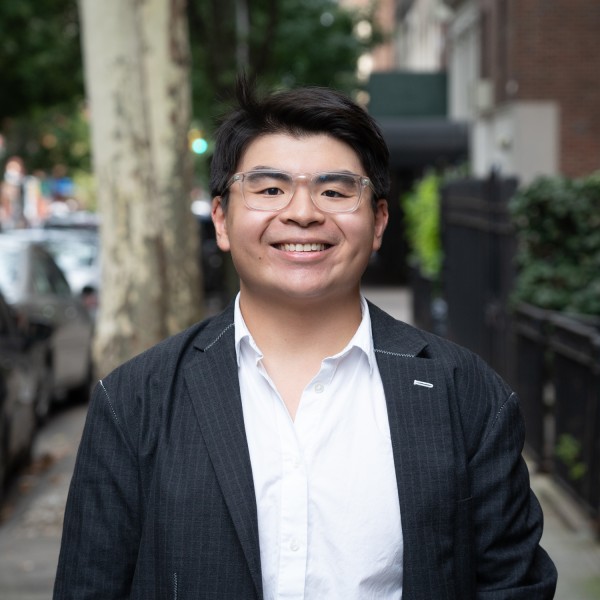Off the Radar: ‘Lucky Grandma’ and the spirit of Chinatown
Off the Radar is a weekly column surveying overlooked films available to students for free via NYU’s streaming partnerships. “Lucky Grandma” is available to stream on Kanopy.
Why the film “Lucky Grandma” deserves more attention. (Illustration by Aaliya Luthra)
October 21, 2022
In “Lucky Grandma” (2019), an archetypal chain-smoking Chinatown curmudgeon is tossed into the chaos of archaic superstitions, organized crime and strained familial relationships. Flashy casino montages and John Woo-inspired action scenes make this genre-crossing character study feel bigger than a low-budget indie movie. This eccentric tale, set primarily in Manhattan Chinatown, plays with two enduring Chinese values: the obsession over lucky symbols and the importance of family ties.
Grandma Wong, portrayed by the silver screen legend Tsai Chin, lives in a tiny apartment above Pell Street. Constantly irritated, especially at her son who desperately wants her to move in with his family, Wong wants her undisturbed and solitary life to stay as it is. Following the advice of a fortune teller, Grandma Wong takes a bus to Atlantic City, armed with the confidence that she is going to win big at the casino. What follows is an unexpected and dangerous manifestation of Wong’s desire for money. Greed, distrust and paranoia dig a deeper hole for our protagonist, who finds herself embroiled in the cross-fire of a deadly gang feud.
A love letter to “Chinatown and all the badass elderly women who inhabit it,” Chin perfectly captures the bitter, stubborn, yet endearing, spirit of the typical Chinese grandma. The film is primarily composed of close-ups and medium shots, always focusing on the scowling expressions and small stature of Grandma Wong. Having been in everything from early Bond films to Wayne Wang’s “The Joy Luck Club,” Tsai Chin delivers a complex, career-defining performance. Her performance as this cold elderly lady is deeply layered; she incorporates deadpan wit, dark humor and emotional vulnerability to create a vivid portrait of a woman who feels deeply disconnected to the people closest to her.
“Lucky Grandma” not only paints a lively picture of the Chinese grandmother, but also of Chinatown itself. Depicting the neighborhood as more than just fluorescent lights, vegetable stands and fake designer bags, Chin shows a profound appreciation for the way of life that a diasporic community has creatic for itself. It does not take the reductive approach of “exoticizing” or “orientalizing” the community/neighborhood. Whether it’s gossiping in a sauna or having dim sum at Mee Sum Cafe, the film fleshes out this neighborhood in a respectful and intimate way.
Lucky symbols are also a significant motif used throughout this film. In the casino montage, Grandma Wong repeatedly bets on the number eight, which is traditionally associated with prosperity in Chinese culture. Whenever she wins more money, a percussive gong sound is played and her grin grows larger. Coincidence makes her fall into a deep obsession with a dubious prophecy.
Throughout the film, she is obsessed with her supposed lucky fortune; all her choices are based on the assumption that things will turn out better for her. Director Sasie Sealy illustrates how this greedy dependence on auspicious symbols can’t change reality and is destructive. Eventually, chasing mystic fortunes can threaten an element of Chinese culture that is even more sacred — family.
Contact Mick Gaw at [email protected].

























































































































































